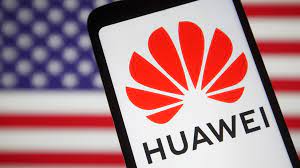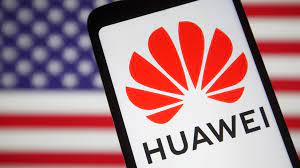
The sanctions imposed on the Chinese telecommunications giant Huawei Technologies by the United States forced the firm to sell a chunk of its once-dominant mobile handset business prior to the company being able to appropriately develop new growth areas which resulted in the company reporting its biggest ever revenue drop in the first half of 2021.
Revenue of 320.4 billion yuan ($49.56 billion) was generated by the company in the first half of 2021, Huawei said. Consumer business group, which includes handsets, reported a dr4op of 47 per cent in revenues, at 135.7 billion yuan, which marked the biggest decline for the company’s business units.
A company spokesperson said that efficiency improvements helped the company to eke out a meagre 0.6 percentage point growth in its net profit margin to 9.8 per cent.
Huawei was placed on an export blacklist by the former US President Donald Trump in 2019 which effectively barred the Chinese firm from accessing critical technology originating from the US that in turn severely impacted the ability of the company to design its own semiconductor chips as well as sourcing components for its handsets from outside vendors.
Huawei's handset business was severely affected by the sanctions which resulted in the company dropping down from the list of top five handset vendors in China during the second quarter of this year which was a first for the company in more than seven years. According to consultancy Canalys, in that period, the company shipped 6.4 million handsets. In comparison, the company had shipped 27.4 million handsets in China in the same quarter in the previous year, excluding shipments of Honor budget handsets.
Huawei sold the brand in November.
More than half of the company's revenue in 2019 was accounted for by the consumer business of the company.
In the first half of the current year, there was a 14 per cent drop in the telecoms equipment business of Huawei which was partially because of the slowdown in 5G rollout in China, said a spokesperson of the company.
According to reports quoting information from an internal memo from founder and CEO Ren Zhengfei in May, plans of focusing on software and business areas not at risk of US pressure were being prepared by the company.
"Our aim is to survive, and to do so sustainably," said Eric Xu, Huawei's rotating chairman, in a statement on the results. "We've set our strategic goals for the next five years."
Its own Harmony operating system was rolled out by Huawei in June which meant that the company would no longer have to depend on United States based Google's Android platform. Google was unable to provide any technical support to new phone models of Huawei because of the US sanctions.
A spokesperson of Huawei said the company generated 42.9 billion yuan in revenues from enterprise business group in the first half of the current year with increased demand for ICT connectivity by companies affected by the Covid-19 pandemic.
According to Canalys, the cloud computing services business of Huawei more than doubled in size in the first quarter and had a market share of 20 per cent in China – marking strong growth in this business unit of the company.
(Source:www.gadgetsnow.com)
Revenue of 320.4 billion yuan ($49.56 billion) was generated by the company in the first half of 2021, Huawei said. Consumer business group, which includes handsets, reported a dr4op of 47 per cent in revenues, at 135.7 billion yuan, which marked the biggest decline for the company’s business units.
A company spokesperson said that efficiency improvements helped the company to eke out a meagre 0.6 percentage point growth in its net profit margin to 9.8 per cent.
Huawei was placed on an export blacklist by the former US President Donald Trump in 2019 which effectively barred the Chinese firm from accessing critical technology originating from the US that in turn severely impacted the ability of the company to design its own semiconductor chips as well as sourcing components for its handsets from outside vendors.
Huawei's handset business was severely affected by the sanctions which resulted in the company dropping down from the list of top five handset vendors in China during the second quarter of this year which was a first for the company in more than seven years. According to consultancy Canalys, in that period, the company shipped 6.4 million handsets. In comparison, the company had shipped 27.4 million handsets in China in the same quarter in the previous year, excluding shipments of Honor budget handsets.
Huawei sold the brand in November.
More than half of the company's revenue in 2019 was accounted for by the consumer business of the company.
In the first half of the current year, there was a 14 per cent drop in the telecoms equipment business of Huawei which was partially because of the slowdown in 5G rollout in China, said a spokesperson of the company.
According to reports quoting information from an internal memo from founder and CEO Ren Zhengfei in May, plans of focusing on software and business areas not at risk of US pressure were being prepared by the company.
"Our aim is to survive, and to do so sustainably," said Eric Xu, Huawei's rotating chairman, in a statement on the results. "We've set our strategic goals for the next five years."
Its own Harmony operating system was rolled out by Huawei in June which meant that the company would no longer have to depend on United States based Google's Android platform. Google was unable to provide any technical support to new phone models of Huawei because of the US sanctions.
A spokesperson of Huawei said the company generated 42.9 billion yuan in revenues from enterprise business group in the first half of the current year with increased demand for ICT connectivity by companies affected by the Covid-19 pandemic.
According to Canalys, the cloud computing services business of Huawei more than doubled in size in the first quarter and had a market share of 20 per cent in China – marking strong growth in this business unit of the company.
(Source:www.gadgetsnow.com)














